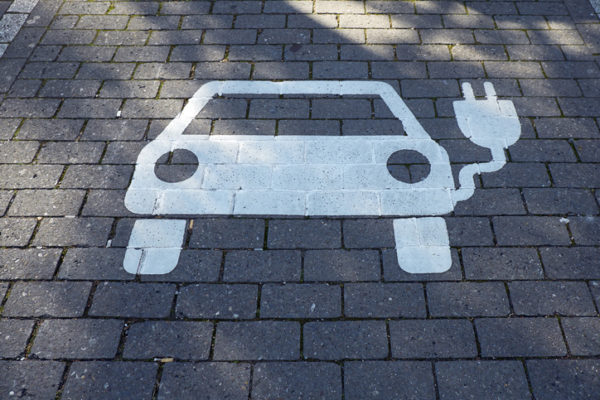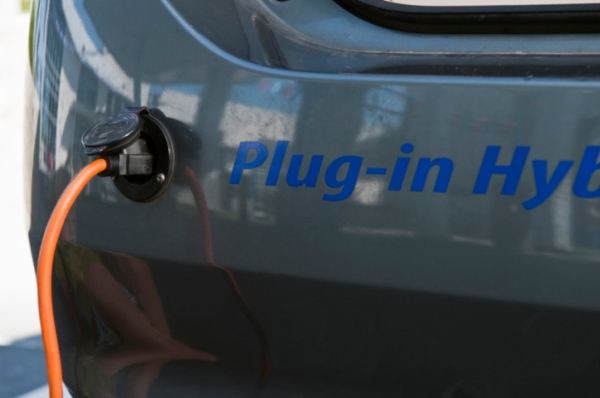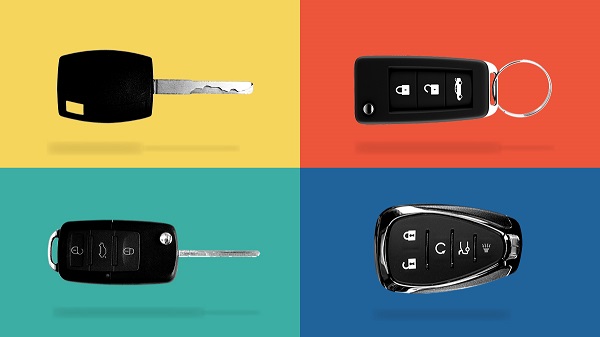Light duty gasoline vehicles like hybrid electric, plug-in hybrid electric and all-electric have seen a steady sales climb since they became in available in 1999. Just 9,400 hybrid electric vehicles were sold in 2000, compared to more than 340,000 in 2018, according to the U.S. Bureau of Transportation.
There are a few reasons for the sales spike. Hybrid and electric vehicles are deemed more energy efficient, produce few emissions and can reduce fuel costs. If you’re looking to potentially make your commute more eco-friendly by purchasing a hybrid or electric vehicle, be sure to gather as much information as you can beforehand.
Check out this hybrid and electric vehicles guide that will explain the difference between the various “green” vehicles, the pluses and minuses of each and the types of vehicles that are available to you.
What Is A Hybrid Car?
Definition: Hybrid electric vehicles combine an electric motor and gasoline engine (hence the term, “hybrid”). The vehicle offers a “best of both worlds” solution because electric motors are three times as efficient as gasoline engines. Meanwhile, gas possesses more energy and runs less expensively than batteries. However, when a gas engine and electric motor work in tandem, hybrids can run on the latter when it is most efficient without wasting the gasoline’s engine’s efficiency, and vice versa.
There are two types of hybrids—mild and full. Mild (also called micro) hybrids use a battery and electric motor to help power the car. The vehicle’s engine can also turn off when the vehicle stops to allow for even better fuel economy. The mild hybrid cannot run on just electricity, however.
Full hybrids meanwhile have bigger batteries, more powerful electric motors and are gas-powered. This combination can power the vehicle for short distances and slow speeds. Full hybrid vehicles also have a rechargeable battery and are more fuel-efficient.
Pros: Hybrids use both gas and electricity, offering superior energy efficiency.
Cons: The cost—hybrid technology makes the vehicles more expensive than conventional cars. Fuel savings and state incentives could offset some of those costs, however. Check out the U.S. Depart of Energy’s “Can a Hybrid Save Me Money?” tool to do a side-by-side comparison between a hybrid and its conventional counterpart.
Examples: Toyota Corolla LE, Ford Fusion, Honda Accord and Toyota Highlander.
Plug-in hybrid electric vehicles (PHEVs)
 Definition: Plug-in hybrid electric vehicles also run on gasoline and batteries to power their electric motor. These vehicles can also be charged from a wall outlet, however. PHEVs typically use their electric-only range (10 to 50 miles) first, then switch to standard hybrid functionality and rely on gasoline for longer trips.
Definition: Plug-in hybrid electric vehicles also run on gasoline and batteries to power their electric motor. These vehicles can also be charged from a wall outlet, however. PHEVs typically use their electric-only range (10 to 50 miles) first, then switch to standard hybrid functionality and rely on gasoline for longer trips.
Pros: PHEVs are great for shorter trips. If your ride is within the vehicle’s electric-only range, you won’t have to use as much gas.
Cons: The “electric only” mileage range is limited. You’ll have to recharge your PHEV often if you want to maximize the electric only option. Otherwise, gasoline is fueling most of your miles, which defeats the purpose of having a hybrid in the first place.
Examples: The Subaru Crosstrek Plug-In Hybrid and Toyota Prius Prime are traditional PHEVs. The BMW i3 and Chevrolet Volt meanwhile are “range extenders”, meaning they are more like all-electric vehicles (more on those in a moment) and have an onboard generator that works like an engine. This engine kicks in after the vehicle’s rechargeable battery runs out in order to produce electricity.
All-electric vehicles
Definition: All-electric vehicles rely solely on battery packs to store the electric energy needed to power the car’s motor. The batteries are also charged with an electric power source—most drivers can use a 110-volt outlet to recharge their vehicle every few days (versus buying and installing a 240-volt charger).
Pros: All-electric vehicles are eco-friendly—they cause less pollution and have lower emissions than conventional vehicles. They are also good for short trips, especially for drivers who travel less than 40 miles per day. That average daily mileage will keep drivers from having to recharge their vehicle as often.
Cons: These vehicles can cost thousands more than traditional vehicles. Much like hybrids however, federal and state incentives as well as lower fuel and maintenance costs can help lower the money paid upfront for the vehicle. The other downside is drivers with longer commutes may find themselves recharging their vehicle more often since it does not have the gasoline backup that hybrids do.
Examples: Nissan Leaf, Chevy Bolt, Tesla Model 3 and Kia Niro.
Should you buy a hybrid or electric vehicle new or used?
 Technology is changing at a rapid clip everywhere you look—including with hybrid and electric vehicles. So if you’re considering buying a used hybrid, just remember the tech inside could be obsolete within a year or two. The newer the vehicle you buy, the more up-to-date the battery chemistry and software will be. Newer electric and hybrid vehicles will also likely be more fuel-efficient.
Technology is changing at a rapid clip everywhere you look—including with hybrid and electric vehicles. So if you’re considering buying a used hybrid, just remember the tech inside could be obsolete within a year or two. The newer the vehicle you buy, the more up-to-date the battery chemistry and software will be. Newer electric and hybrid vehicles will also likely be more fuel-efficient.
The downside of buying new of course is your vehicle depreciates the second you drive it off of the lot. If depreciation is your main concern, consider buying a used vehicle. Just be sure to check the car’s reliability ratings—as well as the battery pack’s reliability. Also keep in mind that the federal tax incentive previously mentioned only applies to vehicles that are purchased new.
No matter what kind of vehicle you choose, make sure to insure it with a company you can trust. GEICO has been saving people money and providing outstanding customer service for 80 years. Get a car insurance quote today.
By Joe Dyton









Daryl Cook says,
I bought a PHEV last summer (2017 Volt). I couldn’t be more pleased. These 2nd generation Volts now get more like 53 miles on a full battery charge. (I have gotten more than this but get less than this in the winter. More like in the mid 40 miles. Colder batteries have lower range.) Since most of your trips are local, you can easily go weeks without ever having even used the gas engine. You can also use the electric charging stations which are all over the city. I have gone as much as 1500 miles between fill ups. Even if you used your gas engine extensively such as on a long trip, you still get about 43 mpg which is no slouch amount. I feel that with that with where the technology is today that this is the best way to go if only wanting one vehicle to serve a variety of distance uses. An all electric vehicle is more practical as a second vehicle for commuting back and forth to work and for short shopping trips.
Matthew says,
Love it
Bruce Day says,
Now that electric vehicles have been on the market a while, i’d like to see what Geico can provide by way of info on purchasing a used one.. Battery life and its’ associated costs would be an important topic in deciding if a used electric vehicle could be a smart decision. Thanks for any input you may provide
Ronald Chan says,
Electric vehicles are range- limited, but good. However, envision the near future when many more ev s are sold and conceivably when they are plugged into the power grid at the same time the grid could overload and crash much like too many air conditioners operating on a hot day. Ray T’s solar solution is a good one. What about hydrogen fuel powered cars? this seems like an answer that will solve both the foregoing and fossil fuel/pollution situation. I recently drove both the Toyota Mirai and the Honda Clarity hydrogen cars. Very impressive. Down side, anyone?
Doug Smith says,
Too expensive. You’d have to spend trillions of dollars creating the infrastructure to create and distribute the hydrogen. Hydrogen production can be clean, but there are cheaper and dirtier ways of producing it. Why design vehicles around another fuel that can be manipulated by large companies when you can generate your own renewable electricity from the sun and wind?
Reinaldo Poveda says,
Muy buenas y excelentes recomendaciones.
Ray T says,
A few years ago, we had Solar panels installed on our home. At the beginning of this year I purchased a Ford C-max Energi that I plug into the house power (solar). The automobile uses electricity for the first 17 miles, then automatically starts running in hybrid mode (using gasoline/electricity like a Prius). So there is no range limitation and so far I’m getting over 200 miles per gallon. It’s quicker and handles better than a Prius (wife’s car), I’m really enjoying my partially solar powered vehicle.
Alkè says,
Thank you, great post! Electric cars are the Future!!! 😉 Electric vehicles are successfully emplyed in many factories, airports and golf clubs. They have the same function of a classic city and with charge station number increasing, new kinds of electric veichles plug-in avaible, it’s easy to choose a electric car instead a gasoline one.
Steve Holt says,
Thanks for the tips! I need a new car that has better fuel efficiency, so having an information guide of different types of hybrid and electrical cars will help me choose the right one. It seems like driving a Plug-in Hybrid Electric Vehicle would be nice to have. I like the idea of being able to keep a full tank of gas until the electric power in my car runs out and converts to using the fuel in my gas tank. That would allow me to only pay for gas only when I drive enough miles to go through my tank.
KATHRYN PAGE says,
MUCH NEEDED INFORMATION !